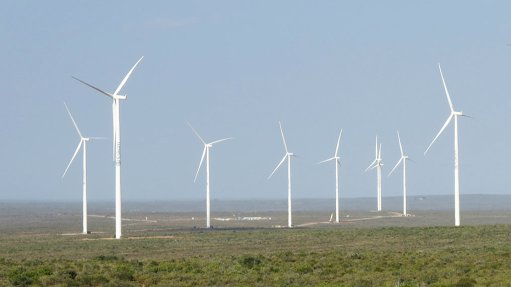Two economic hat-tricks
A hat-trick is the achievement of a generally positive result three times in a game or in another endeavour. Well, not in this instance, I am afraid. But before we get there, the term was coined in 1858 to describe cricketer HH Stephenson’s feat of taking three wickets in three consecutive deliveries. Following the feat, fans took a collection and presented Stephenson with a hat bought with the proceeds. The term was eventually adopted by many other sports, but not by those in the financial world; If that was the case, the South African economy would have succumbed to a hat-trick or two.
We have had a hat-trick of three quarters of negative economic growth, even before Covid-19 was factored in. For that event, some might call it a tragedy, you will need to wait for the report of the second quarter of 2020. If you want to diarise the release date of the second-quarter gross domestic product, it is at 11:30 on September 8.
If you are a non-economist, you might as well question whether the economy is in a recession. The thing is that there is no formal economic definition of a ‘recession’. It is thus unsurprising that economists are not very good at predicting recessions. For how would economists be able to predict recessions, if they are unable to define a recession? But do not take my word for it; according to Lawrence Summers, a previous chief economist of the World Bank, “economists are not good at predicting recessions a year in advance”. Paul Samuelson, a Noble laureate in economics, famously said: “The stock market had predicted nine of the last five recessions. Economists, on the other hand, have predicted none of them.” There is a reason for this, as Gavyn Davies reminded us in his October 2015 Financial Times article: “Recessions happen suddenly, sometimes out of a clear blue sky, and forecasters hardly ever build a severe recession into a ‘main case’ forecast more than a quarter or two in advance.” As a South African, you might well take issue with this assertion, as any economic commentator worth his or her salt would build in the present as a recession as a matter of fact.
In the absence of a formal definition for a ‘recession’, it is generally acknowledged that two consecutive quarters of negative economic growth constitute a recession. Why are recessions considered such a rarity? Well, since the last quarter is compared with the previous quarter, things must be very bad if the last quarter is even worse than the previous and so forth. Three quarters of negative economic growth is arguably even worse than bad. South Africa is on the verge for a fourth consecutive quarter of negative economic growth. Unfortunately, the third consecutive quarter of negative economic growth is not the only economic growth hat-trick.
This is the South African economy’s third recession since 1994. In comparison, the world has recorded only four economic recessions since World War II, which ended in September 1945. These occurred in 1975, 1982, 1991 and 2009. So, only one since 1994, just in case you believed the South African economy mirrors the world economy. It is, however, quite possible that Covid-19 would lead to a world recession, but the fact of the matter is that the South African economy went into a sustained economic recession even before Covid-19 became an international pandemic. Consider the New York Times headline of April 14: ‘IMF predicts worst downturn since the Great Depression’.
In case you are thinking that there is light at the end of the tunnel for the South African economy, you might want to take heed of the lyrics of the Metallica song: No Leaf Clover: “Then it comes to be that the soothing light at the end of your tunnel; Is just the freight train coming your way; It's coming your way; It’s coming your way, here comes.”
Article Enquiry
Email Article
Save Article
Feedback
To advertise email advertising@creamermedia.co.za or click here
Press Office
Announcements
What's On
Subscribe to improve your user experience...
Option 1 (equivalent of R125 a month):
Receive a weekly copy of Creamer Media's Engineering News & Mining Weekly magazine
(print copy for those in South Africa and e-magazine for those outside of South Africa)
Receive daily email newsletters
Access to full search results
Access archive of magazine back copies
Access to Projects in Progress
Access to ONE Research Report of your choice in PDF format
Option 2 (equivalent of R375 a month):
All benefits from Option 1
PLUS
Access to Creamer Media's Research Channel Africa for ALL Research Reports, in PDF format, on various industrial and mining sectors
including Electricity; Water; Energy Transition; Hydrogen; Roads, Rail and Ports; Coal; Gold; Platinum; Battery Metals; etc.
Already a subscriber?
Forgotten your password?
Receive weekly copy of Creamer Media's Engineering News & Mining Weekly magazine (print copy for those in South Africa and e-magazine for those outside of South Africa)
➕
Recieve daily email newsletters
➕
Access to full search results
➕
Access archive of magazine back copies
➕
Access to Projects in Progress
➕
Access to ONE Research Report of your choice in PDF format
RESEARCH CHANNEL AFRICA
R4500 (equivalent of R375 a month)
SUBSCRIBEAll benefits from Option 1
➕
Access to Creamer Media's Research Channel Africa for ALL Research Reports on various industrial and mining sectors, in PDF format, including on:
Electricity
➕
Water
➕
Energy Transition
➕
Hydrogen
➕
Roads, Rail and Ports
➕
Coal
➕
Gold
➕
Platinum
➕
Battery Metals
➕
etc.
Receive all benefits from Option 1 or Option 2 delivered to numerous people at your company
➕
Multiple User names and Passwords for simultaneous log-ins
➕
Intranet integration access to all in your organisation

















